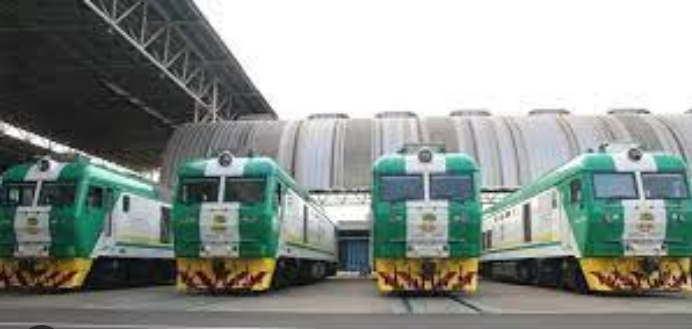By Joke Kujenya
THE NIGERIAN Railway Corporation (NRC) has reported a remarkable increase in rail transportation metrics for the first quarter of 2024, reflecting a substantial rise in both passenger and cargo movement.
According to the National Bureau of Statistics (NBS), the total number of passengers who traveled by rail surged to 675,293, marking a 52.88% increase from the 441,725 passengers recorded in the same period in 2023.
The NRC says cargo transportation also experienced significant growth. The volume of goods transported via rail actually reached 160,650 tons, a notable rise from the 59,966 tons documented in the first quarter of the previous year.
Additionally, the NRC noted the movement of 8,000 tons of goods through pipelines, a new inclusion in their reporting metrics.
The surge in passenger and cargo numbers translated into higher revenue for the NRC.
Passenger revenue soared to N1.42 billion, an 84.91% increase from the N768.44 million collected in Q1 2023.
The revenue from cargo transport also saw an impressive rise, with N607.32 million generated in Q1 2024, up by 235.03% from the N181.27 million earned in the corresponding quarter of the previous year.
Furthermore, the pipeline transport of goods contributed an additional N59.14 million in revenue.
However, not all financial indicators showed positive trends.
Other income receipts, which encompass various ancillary revenue streams, declined by 25.65%, totaling N25.40 million compared to N34.17 million in Q1 2023.
These figures underscore the increasing reliance on rail transport in Nigeria, reflecting improvements in infrastructure and service delivery by the NRC.
The sharp rise in both passenger and cargo numbers is indicative of a growing confidence in the reliability and efficiency of rail transport as a means of moving people and goods across the country.
The NBS reports notes that as the NRC continues to expand its services and enhance its operational capabilities, the trends observed in the first quarter of 2024 suggest a promising future for rail transportation in Nigeria, potentially reducing road congestion and contributing to economic growth.





